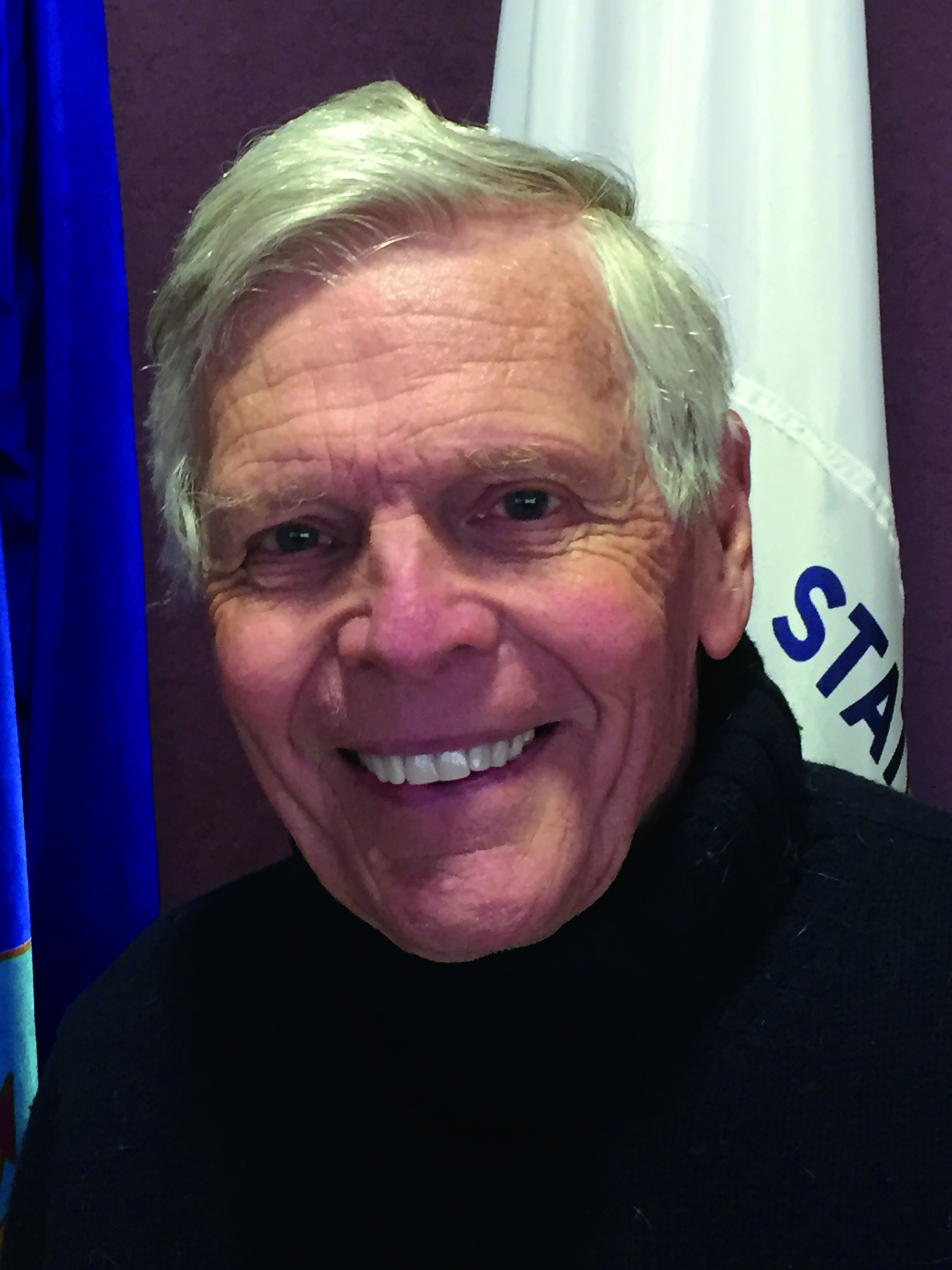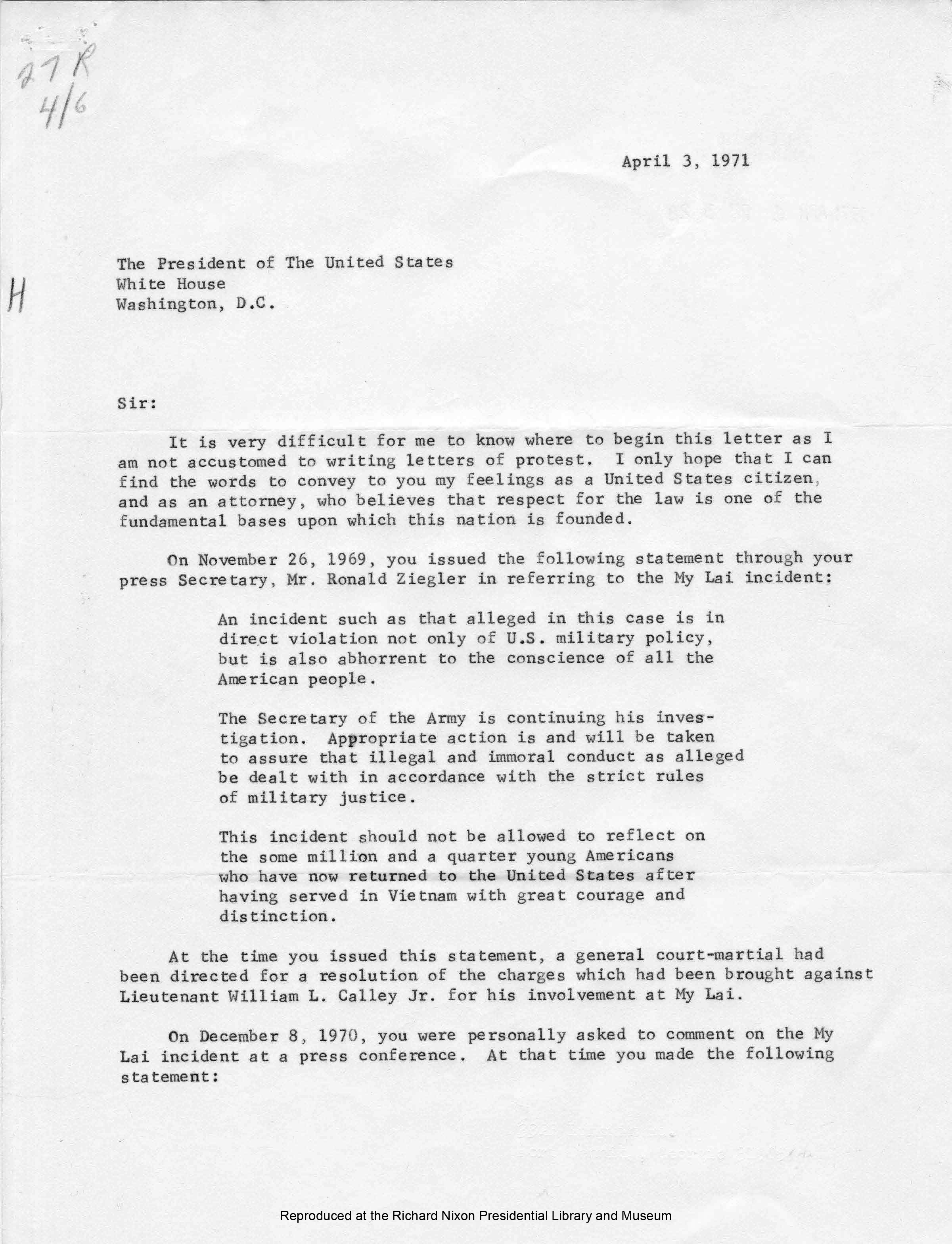
(Credit: OTJAG Strategic Initiatives Office)
Aubrey Daniel Honored with Distinguished Member Status
By Fred L. Borch
On 16 August 2018, The Judge Advocate General of the Army (TJAG)—Lieutenant General (LTG) Charles N. Pede—honored Mr. Aubrey Daniel with Distinguished Member status in our Regiment. Daniel, who served as a judge advocate captain in the late 1960s and early 1970s, is best known as the lead trial counsel in United States v. Calley. This court-martial, tried at Fort Benning in 1971, was the only successful criminal prosecution arising out of war crimes committed by Soldiers at the village of My Lai in Vietnam on 16 March 1968.
Mr. Daniel’s conviction of Lieutenant William L. “Rusty” Calley was important, and Daniel’s mostly extemporaneous closing argument has been singled out by trial attorneys for its excellence. But LTG Pede stressed that he was honoring Daniel with Distinguished Member status for another reason: a letter of protest that then Captain Daniel wrote to President Richard M. Nixon after the president interfered in the Calley case. Daniel wrote the letter because, after the court-martial panel sentenced Calley to be confined at hard labor for life for murdering unarmed and unresisting Vietnamese civilians, Nixon instead ordered the Army to return Calley to his on-post quarters where Calley would be under house arrest while the verdict and sentence were reviewed.
At the time, it was clear to almost everyone that President Nixon had interfered in the Calley case in response to angry letters, draft-board resignations, and public opinion polls showing that the vast majority of Americans viewed Lieutenant Calley either as a scapegoat or as a Soldier simply doing his duty. Daniel thought otherwise, and wrote to Nixon that it was shocking to him that “so many people across the nation have failed to see the moral issue which was involved in the trial of Lieutenant Calley—that it is unlawful for an American soldier to summarily execute unarmed and unresisting men, women, children, and babies.”
Moreover, continued Daniel, Nixon’s unprecedented intervention in the court-martial, occurring as it did before the record of trial had been typed up or gone to the convening authority for action, had further elevated a mass murderer of innocents into a national hero. The intervention injected politics into the judicial system whose “fundamental precept” was that the law must be free of such politics. The intervention failed to uphold moral principles concerning protection of the weak and it damaged the credibility of the military justice system.
Daniel’s letter was “a magnificent expression of American idealism,” The New York Times said in an editorial the day after it printed the letter in full.1 It was a “courageous statement of what this country is really all about: respect for human freedom, for individual rights and for impartial justice under law.”2
Fifty years after the incident at My Lai, LTG Pede said he wanted the lawyers under his command to remember what Daniel did. “It was the principled stand of Mr. Daniel that I’ve always admired,” Pede said at the ceremony honoring Mr. Daniel, who, at age seventy-seven, has retired from the practice of law and lives full-time in Italy. TAL
Fred L. Borch is the Regimental Historian & Archivist for the The Judge Advocate General’s Corps.
Notes
1. The Calley Issues, N.Y. Times (Apr. 8, 1971) https://www.nytimes.com/1971/04/08/archives/the-calley-issues.html.
2. Id.
